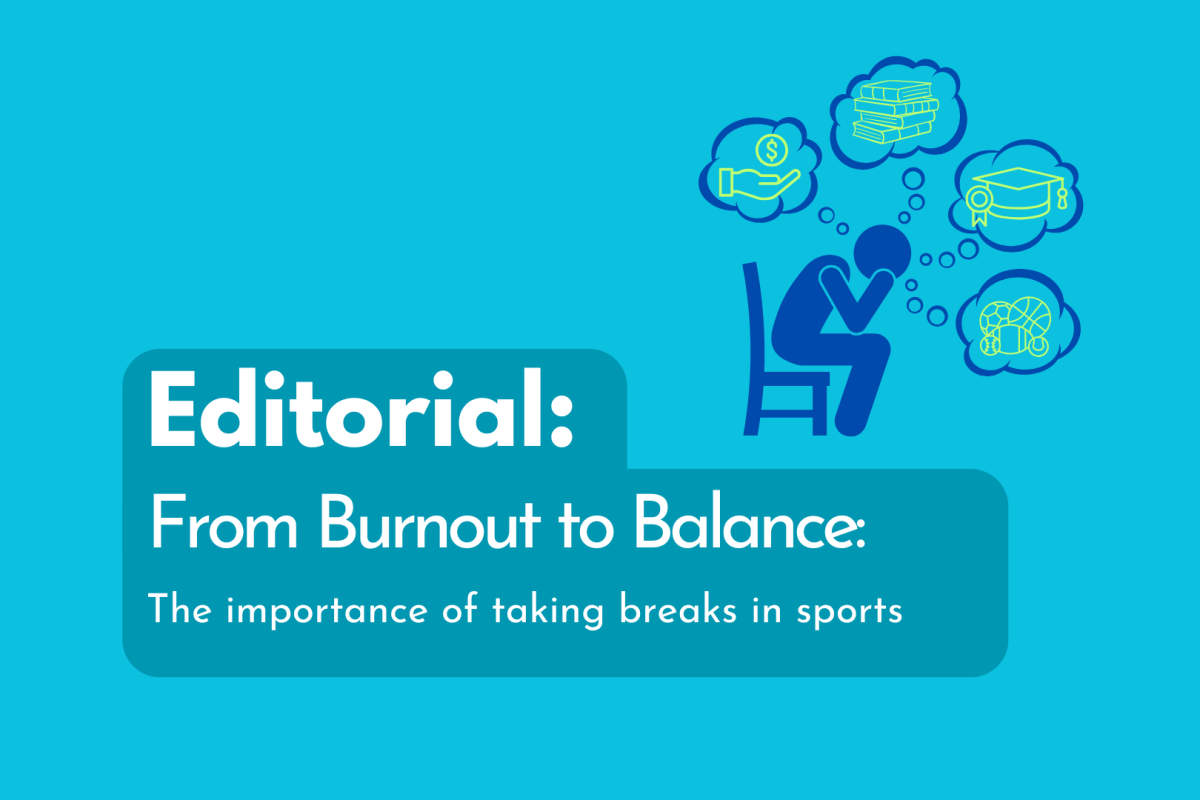Participant responses have been edited for clarity and style.
Senior Daniel Elabbasi – Independent
Top Takeaways:
- This debate was respectful. Over the last few election cycles, Americans have become accustomed to debates filled with insults, one-liners and an adversarial tone. The candidates shook hands at the beginning and end of the debate, expressed sympathy towards one another and demonstrated that in today’s political atmosphere, it is indeed possible to respectfully disagree.
- Policy was the center point of the debate, and most questions were answered. Unlike in the presidential showdown last month, both candidates put the character issues they had with each other aside, to debate the issues at hand. While answers to questions would sometimes begin with a small anecdote, they would mostly return to the question and give a clear answer.
- Vance successfully challenged the expectation and perception that he would come off as unapologetic and harsh. He remained calm throughout the debate, clearly and concisely making his points while showing his “humanity” a lot in several instances. He thanked the American people for tuning in, he expressed sympathy for the events that Walz’s son witnessed and he showed bipartisanship on many issues.
- Walz did a good job of cornering Vance on issues where Trump holds very controversial views. Walz challenged Vance on the security of democracy and made the point that the only reason Vance was on the stage, rather than former Vice President Mike Pence, was because Pence was loyal to the Constitution and not former President Trump when he certified the 2020 election results. He claimed that Vance would put Trump over the country, and directly asked Vance if Trump lost the 2020 election. In response, Vance proceeded to give a non-answer.
- Walz capitalized on the issue of abortion, an issue where the country statistically trusts Democrats over Republicans. He focused on making a clear point; it’s Trump’s fault that Roe v. Wade is gone. Notably, Vance did a decent job of trying to communicate the Republican perspective, even admitting that they haven’t had the clearest messaging, but most Americans already have their mind made up on this issue.
- Closing arguments were another area where the debate felt more traditional. Walz made his point that the choice was clear between who would defend democracy and that there was another choice in this election besides Trump. Vance quickly brought up the topic of energy and the economy, then pivoted to his point that Kamala is currently in office and that she should’ve already done all of what she is proposing.
Winner: Tie
Both candidates thrived in their own ways. Vance came across as cordial, calm and collected, which was very much needed as his favorability before the debate was much lower than Walz’s. Walz won on the topics of abortion and democracy, while Vance won on issues of the economy and immigration. It was close, but one thing can be made clear: the overall winner in this debate was the American people. Whether it was the answering of questions, the bipartisanship or the politeness, this debate reminded us of how it used to be in American politics.
Senior Jax Jackson – Democrat
Top Takeaways:
- Tim Walz is smart to open by mentioning how Donald Trump’s former advisers have spoken out against him. Unfortunately, such statements against Trump failed to directly answer how he would defend Israel. Vance, speaking calmly while criticizing rather than attacking his opponents, sets himself up as someone who has served in the Middle East and who plans to listen to Israel’s interests.
- Unlike the presidential debate, this debate has many more personal moments. Vance and Walz relate to each other by demonstrating their ability to bridge the party gap in order to support the American people during Hurricane Helene. The ability for candidates to discuss without brutally attacking each other’s character is a win for both sides of the debate as it makes the candidates likable. In the discussion of Hurricane Helene, Walz was correct in calling out comments made by Donald Trump calling climate change a hoax. However, Vance is quite analytical in his response, especially in discussing the framing of Democratic vocabulary.
- Both candidates acknowledge their wrongs. It is smart for Walz to say that the Democratic Party failed with their fentanyl restrictions because he adequately leads that discussion into Trump’s squashing of the border bill so that he could use it as a campaign issue. Vance replies well, explaining his views on how Harris disbanded Trump’s actions. I feel that a middle ground is the best solution here. Walz says that allowing this to be a talking point rather than allowing border control to be an agreement between parties leads to dehumanization such as the treatment of people in Springfield, Ohio where Donald Trump stated that Haitian immigrants were eating domestic animals. Such events did not occur, and stating that they did detracts from finding a solution and forms greater issues of hatred, racism and violence in America.
- I commend both Vance and Walz for describing times they’ve misspoken and being honest. I commend Vance for explaining how his views on Trump changed rather than deflecting the question. I think that this is very important for a vice presidential candidate. The ability for candidates to acknowledge where the other party has made strong choices and share their own failures makes this a great debate.
- When reproductive rights were brought up, I said out loud, “Well, this should be fun.” Walz followed Harris in sharing extremely specific stories where abortion rights solved horrific problems. Vance makes great claims about giving women more options, but I don’t trust the statement that Trump wants voters to make abortion decisions. I feel that the right to control your own body should be a specific choice made by the entire country for geographical continuity. Vance seems to be changing his opinions, but his original position was so extreme that I fear he may be claiming to change his position just to be elected.
Winner: Vance
My winner of the debate is two-fold. Firstly, I believe that JD Vance edged out a victory in this debate. He was direct in his points, recognized his opponents’ successes and politely criticized his opponents’ failures. Walz wasn’t far behind, also mentioning Vance’s capability and pointing out certain Trump failures like tax avoidance and denouncing climate change. The reason why I give the edge to Vance is that while both were equally firm with their points, Vance had more to prove. After a highly criticized Republican showing in the Presidential Debate with Ispos reporting that 63% of Americans believed that Harris outperformed Trump, Vance had to make up for the dodgy showing in the Presidential Debate.
Overall, however, the debate was a victory for democracy. It has been too long since the country has watched candidates from opposing parties have a human discussion. After a Presidential debate full of lying, arguing and bullying from both candidates, I was afraid of a repeat debate. However, watching two men have a real conversation brought back my hope in this country.
Junior Mia Nicosia – Republican
Top Takeaways:
- Vance maintained a calm and confident demeanor throughout the debate. Even when Walz interrupted him, Vance didn’t react emotionally but instead agreed with him and continued speaking smoothly. This composure, especially when challenged, showed his capability to remain unfazed and focused: qualities desired in a vice president.
- Unlike Walz, who repeatedly attacked Trump, Vance stayed on point. He focused his critiques on Kamala Harris, highlighting her failures without resorting to personal attacks. Vance’s ability to stay on topic while addressing issues like immigration, inflation, abortion, guns and drugs made his arguments more compelling.
- Walz may have sounded confident, but he often relied on emotional appeals and broad generalizations. Vance, on the other hand, provided concrete evidence to back up his claims. Whether discussing inflation or job creation under the Biden administration, Vance clearly articulated the root causes and solutions without veering into baseless statements, unlike his opponent.
- Vance’s admission of a past mistake in criticizing Trump and his explanation of how he corrected it by seeking out facts demonstrated his ability to self-reflect and grow as a leader. This transparency reinforced his credibility and contrasted sharply with Walz, who struggled to address his own failings, particularly in his community leadership. Also, Walz made mistakes during the debate. For example, he said that he was friends with school shooters.
- Vance stood out by offering a clear and forward-looking vision for the country, particularly in areas such as family policy and child care. He emphasized the need for a “pro-family” approach, advocating for accessible infertility treatments and affordable housing. This long-term solution-oriented perspective contrasted sharply with Walz’s more reactive rhetoric, which often centered around the current administration’s shortcomings. Vance’s focus on creating a better future, rather than just critiquing the present, resonated with true leadership.
Winner: Vance
JD Vance’s performance in the debate demonstrated his leadership qualities: confidence, clarity and a solutions-based approach. While Walz tried to rely on attacks and emotion, Vance stayed focused on policy and facts, positioning himself as a strong and capable candidate ready to address the challenges facing the country. His ability to remain composed, admit mistakes and speak directly to voters’ concerns made him the clear winner of the debate.













